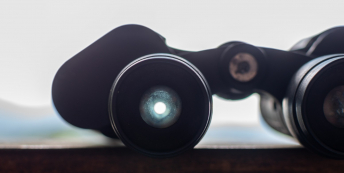
Newly Updated
Tired of searching endlessly for ‘your thing’ and coming up empty-handed? Unable to make progress until you know what your future career should be? Sometimes a change in focus can reveal a whole host of new possibilities. Natasha shares three powerfully simple questions to get you re-inspired and able to take action on your shift.
“Once I know what I want to do, then I can start. I just can't figure out what that is.”
“What kind of work suits me best? What would make me happy?”
“What's my ideal career?”
What, what, what… What if trying to pin down your 'What' first doesn't always work?
(You'd think if it were an effective starting point, you might have made a bit more progress by now…)
Sometimes, the greatest moments of inspiration come when you approach a problem from a new angle.
So if asking 'What?' isn't getting you the answers you're looking for, here are three other questions to explore:
1. Start from 'How?'

While it's common to answer the question 'What do you do?' with a job title, how you work actually dictates far more of your day-to-day experience than what you're working on.
Moment to moment, you're far more aware of how the time you wake up impacts on your ability to focus; how your environment affects your energy; how your measure of 'results' drives your motivation.
And while the idea of 'work' has a common image (just try searching the word 'work' in a stock image search engine), the reality is enormously diverse.
So if your 'What' is eluding you, trying starting from your 'How' instead.
- Do you want to work full-time or part-time? Fixed hours or when you want?
- Have three different jobs on the go or deep-dive into one area?
- Use your hands and your body more, or your mind and your mouth?
- Would you prefer to have total autonomy or be part of a team?
- Travel regularly or stay in one place?
- Get paid for results, or sit on a salary?
- Work in your underpants or rock a sharp suit?
Although Lucy enjoyed her work in publishing, she knew that to truly feel alive, she needed to be outside and connected to nature.
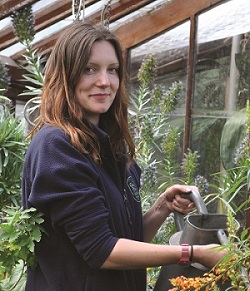 “It drove me mad sitting at a desk all day and staring at a screen. I wanted to do something challenging to my body and mind, and something that would involve adventure and nature.
“It drove me mad sitting at a desk all day and staring at a screen. I wanted to do something challenging to my body and mind, and something that would involve adventure and nature.
“Having being brought up in rural Staffordshire, where my happiest times were trudging through a forest collecting fir cones or scrambling up hills through the bracken, I felt a strong urge to go back to the wild and work outdoors, directly with the seasons.” – Lucy Rowley (read more about her story here)
Esther was feeling run down and overextended juggling family life and a role that required her to travel. So she started from her 'How', basing her search on work that allowed her total flexibility.
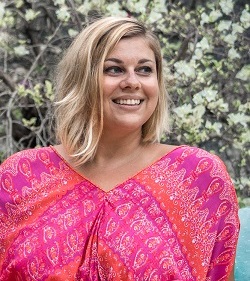 “I knew people were working from home and there were more flexible options out there somewhere – I was determined to figure it out for myself. I had no idea what I was going to do but I knew there had to be something better than this.” – Esther Inman (find out more about her story here)
“I knew people were working from home and there were more flexible options out there somewhere – I was determined to figure it out for myself. I had no idea what I was going to do but I knew there had to be something better than this.” – Esther Inman (find out more about her story here)
Starting from your 'How' places your work firmly in the context of your wider life.
You begin to paint a picture of a world where your work is no longer a clumsy appendage to be balanced and managed, but a fluid expression and continuation of how you choose to live.
2. Start from 'Who?'

The 'Who' of your career has two parts: who do you want to work with, and who do you want to work for? Your team, and your clients; your company, and your service users; your manager, and your customer.
Who do you want to serve, and who do you want in your corner while you do it? Maybe those are two very different groups.
But equally, those two parts can boil down to just one question: Who do you want to hang out with all day? Because you will be hanging out with them all day...
“According to a recent report by Relate, those in full-time work in the UK spend more time with colleagues than with family or friends.
“The report highlighted that employees were about as likely to have daily contact with work colleagues (62%) as they were their own children (64%), and over 4 in 10 (44%) were more likely to have daily contact with their bosses than with their mothers (26%) or friends (16%).” – Mental Health Foundation, 2016
So, it follows that the quality of your working relationships has as much of an impact on your feelings about work as what you're actually doing.
Gallup found that close work friendships increase your job satisfaction by 50% and people with a best friend at work are seven times more likely to engage fully in their work.
This certainly rang true for Lori, who struggled with her new career choice until she found a way to surround herself with the right people:
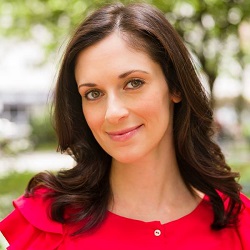 “It was a very jarring change to go from a busy office space, with so many people, to just me. Now I'm in a co-working studio space called Friends Work Here, which is great because I'm around other motivated, self-employed people across many different disciplines. It's a good energy.” – Lori Richmond (read more about her shift here)
“It was a very jarring change to go from a busy office space, with so many people, to just me. Now I'm in a co-working studio space called Friends Work Here, which is great because I'm around other motivated, self-employed people across many different disciplines. It's a good energy.” – Lori Richmond (read more about her shift here)
So even if you can't figure out your 'What' yet, your 'Who' is a smart place to start.
- What kind of people make you feel most like yourself? (Hint: ‘nice’ isn’t specific enough)
- What values do you want in the people you spend your working hours with?
- Who inspires you? Who do you admire?
- Are they creative thinkers? No-nonsense go-getters?
- Who would you be proud to serve?
- What kind of people need, celebrate and value the kind of person that you are?
- What personalities balance and support you – who is the yin to your yang?
- Do you even want to be around people at work?
Katie had a strong hunch about her 'What', but it was the people she discovered in her new industry that closed the deal:
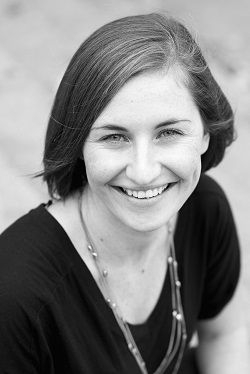 “The people working in social impact design resonated much more with me. The conversations, questions, and issues raised with fellow volunteers were much more interesting and stimulating than conversations I'd had with other architects. I felt like I had found my tribe.” – Katie Crepeau (find out more about her career change here)
“The people working in social impact design resonated much more with me. The conversations, questions, and issues raised with fellow volunteers were much more interesting and stimulating than conversations I'd had with other architects. I felt like I had found my tribe.” – Katie Crepeau (find out more about her career change here)
Starting from 'Who' is an unusual entry point to an exploration of your future career – but it's also an angle that can inspire you to look in places and industries you may never have considered before.
Once you've got an idea of who your 'Who' might be, you can start to think about 'Where' those people might be found. And you might just find that the 'What' follows closely behind...
3. Start from ‘Why?’

“He who has a why to live can bear almost any how.” – Friedrich Nietzsche
It's probably clear by now that simply 'bearing' your 'how' is not the aim of the game we're playing at Careershifters. But Nietzsche makes a strong point: if you're working on something you believe in, the specifics of 'what' you're doing don't take centre stage.
So, if you haven't pinned down what you want your days to be filled with, starting from what you're filling them for can give you a powerful set of starting blocks.
- What problem in the world do you most wish could be solved?
- What events in your past shaped who you are?
- What do you want to be associated with / remembered for?
- If you could pass a global law, what would it be for?
- What frustrates you most about the way things are?
- What’s the one thing you believe would make the biggest positive impact on the world?
- What do you wish more people understood?
Charlotte found her 'Why' while she watched an industry she loved being eaten alive by big business:
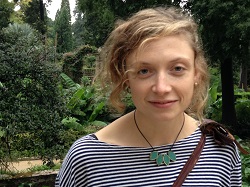 “Working for a wonderful independent publishing house that I totally believed in, and seeing how uneven the playing field was for them, made me want to change things… I thought about how I wanted these big businesses to behave differently, and came to the conclusion that I had to try to be part of making that change happen.” – Charlotte Sewell (read more about her story here)
“Working for a wonderful independent publishing house that I totally believed in, and seeing how uneven the playing field was for them, made me want to change things… I thought about how I wanted these big businesses to behave differently, and came to the conclusion that I had to try to be part of making that change happen.” – Charlotte Sewell (read more about her story here)
For Alex, a glittering career in the music industry had started to feel cold and flat. He wanted to feel he was making a positive social impact on the world, but he didn't know what that might look like, exactly. But by focusing on 'Why', he found his way to the 'What':
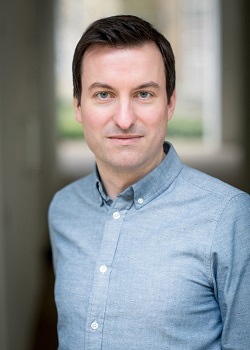 “I knew I wanted to use my business skills. I knew I wanted to do something socially valuable. And I knew I needed to be proud of what I was doing, to find meaning in my work and its results.” – Alex Robinson (find out more about his shift here)
“I knew I wanted to use my business skills. I knew I wanted to do something socially valuable. And I knew I needed to be proud of what I was doing, to find meaning in my work and its results.” – Alex Robinson (find out more about his shift here)
It's important to remember, too, that having a 'Why' doesn't require you to go into the charity sector. Yes, you might find you're drawn to non-profits with a social impact, but every business, every organisation, has some kind of 'Why' (for more on this, check out Simon Sinek’s TED talk and related works).
Whether it's making the world a prettier place or ending world hunger, starting from your 'Why' can provide an umbrella under which it's infinitely easier to find your 'What'.
'How', 'Who' and 'Why' aren't easy questions to answer. But they are rich inquiries to explore (and 'explore' is the key word here).
With every new insight into how you want to work, you open up a new question: Who's out there working in this way? How are they making it work? And what are they doing?
As you develop more ideas about who you want to be surrounded by, you start to keep an eye out for those kinds of people. Where might they be? How might you come into contact with them more?
And as you ask yourself about your 'Why', as you connect with a sense of purpose and develop an expression of your values, you reduce the pressure on yourself to get the 'What' exactly right, right away.
But remember: the answers to these questions are unlikely to be found immediately inside your head. If they were there, you'd know them by now.
And even if you do know them, knowledge gets you nowhere without action. Don't just think about your 'How', your 'Who', and your 'Why' – go and experience them. Talk to people. Try things out. Stretch your fishbowl. And come play with us in our upcoming Career Change Launch Pad.
Which of these questions are you going to start exploring first? Let me know in the comments below!




